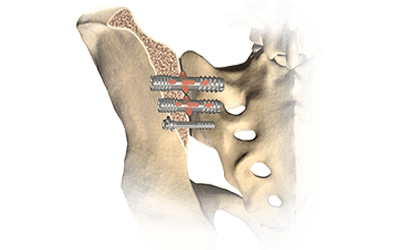Neuromonitoring Job
Since I started this website, I get emails and calls all the time about how to get a neuromonitoring job with no CNIM. I’m glad to help, but feel like I end up saying a lot of the same thing over and over. So I’m making this post in hopes that people will read this, ask more questions and give answers of their own. So please, join in the conversation here (but if you’re shy, or just want to talk to me privately, I’m more than happy to chat).
Here’s an email I got today…
I recently contacted you via Google+, and you suggested asking further questions through your website so others could see.
I graduated from XXXXX with a Bachelors in Biological Engineering. I am working as a Research Associate at XXXXX.
I have become more and more interested in the field of Neuromonitoring because it would meet my need for a more interactive and rewarding career. And, I’ll just say it: I do want to be making more money than the 33k I am making now. I also have been putting off pursuing a Graduate degree simply because I haven’t found an interest or passion relating to the research I am doing now. I have been working for about two years straight out of undergrad, but I have reached the point where I need to make a new move to start a career that I will enjoy.
I have talked to a friend of a friend who has her CNIM, and she told me to go for it. She said, as you mentioned, Joe, that there are people that go into the field from all different backgrounds. The company she worked for paid her during her training for the CNIM. However, I’m finding that not every company offers this. I read your link that you sent me about putting yourself out there and getting involved, and I think that is my next task.
Would you suggest getting volunteer experience in the OR (if that’s possible) before even applying to a IONM company with a training program? It that is the case, is there anything I need in order for a hospital to let me into the OR, like CPR certification or anything?
Also, a great thing about my job at XXXX is that I have the option of creating my own work schedule. I see this as a fabulous way for me to make time to take a couple of courses if you think that is necessary. Also, I could easily do any volunteer work at a local hospital.
Thank you so much for responding to me message! Also, your website is incredibly helpful!
Cheers,
XXX XXX
And here’s my reply…
Most hospitals are going to deny volunteers. I would have said almost all of them, but I know a guy that did it at the hospital I work at. He did it every day for months, and they finally hired him. All he did was call up the neuromonitoring department and ask if they would consider it. No one else is doing that.
Another guy just called up and asked if they were hiring. The timing was perfect and they hired him with no experience. But I don’t see a hospital doing volunteers for a contract company. It’s hard enough getting their employees in the OR.
But I wouldn’t start there, because you have less of a chance getting a volunteer position than a job. If they say they aren’t hiring people without experience, you could use the volunteer as a bargaining chip. Companies are used to paying 40-60K a year to train someone (plus benefits, malpractice insurance, etc) before they start seeing a return off of them. You could try talking them into a 90 day volunteer/probational period where you can prove yourself as a fast learner and someone that they’ll want to keep around for a long time. If it doesn’t work out, then you’ll thank them for the opportunity and go your separate ways. Take on all the risk and then exceed their expectations, that usually works out well.
As far as taking IOM classes or neuromonitoring courses as part of your IOM path, I’m not sure how different companies view it. I’m sure some will value it, while others might not. You could spend thousands on more schooling just to be passed over because you still don’t have experience or credentials. Or that could be the thing that pushes your resume to the top. But does the cost justify it?
I already mentioned in post on my blog about how to go about getting your first IOM job, but as I am typing this, I just thought of another one. Go to these social networking sites (Linkedin.com seems to be by far the best one), and connect with recruiters. Once you connect with them, of course introduce yourself and what you’re looking for.
If they have a job looking to get filled, great. Go get that job. And if you do get it, thank them later. If you don’t get it, go back and see what else they got.
If you get to a point where they don’t have anything right now for you, don’t stop there. Ask them things like…
1) What are some things that people getting hired, who have no prior IOM experience, have in common?
2) If I was to come back to you 3-6 months from now and ask you again to help get me a job, what things would I have done in that time to make your job easier?
3) What’s are most employers looking for in candidates that they hire to train first?
4) If the company you’re recruiting for isn’t hiring new trainees, who do you know that will?
And so on…
Remember, these are the guys and gals that see who’s getting hired and who’s not. Be nice to them and get them on your side. They are going to know better than anyone what’s going to help you and what’s a waste of time.
Hope that helps!
Joe
Calling All Pro’s!!!
Not everyone reading this is looking for their first neuromonitoring job. If you’ve been in the field for some time, chime in and help out. Tell others about how you got your first job. Leave a comment below with your top 3 ways someone without the CNIM can land their first neuromonitoring job. Or tell them my advice stinks, volunteering is for pleasure, not a career.
Image from http://bit.ly/15Y0nNhKeep Learning
Here are some related guides and posts that you might enjoy next.
How To Have Deep Dive Neuromonitoring Conversations That Pays Off…
How To Have A Neuromonitoring Discussion One of the reasons for starting this website was to make sure I was part of the neuromonitoring conversation. It was a decision I made early in my career... and I'm glad I did. Hearing the different perspectives and experiences...
Intraoperative EMG: Referential or Bipolar?
Recording Electrodes For EMG in the Operating Room: Referential or Bipolar? If your IONM manager walked into the OR in the middle of your case, took a look at your intraoperative EMG traces and started questioning your setup, could you defend yourself? I try to do...
BAER During MVD Surgery: A New Protocol?
BAER (Brainstem Auditory Evoked Potentials) During Microvascular Decompression Surgery You might remember when I was complaining about using ABR in the operating room and how to adjust the click polarity to help obtain a more reliable BAER. But my first gripe, having...
Bye-Bye Neuromonitoring Forum
Goodbye To The Neuromonitoring Forum One area of the website that I thought had the most potential to be an asset for the IONM community was the neuromonitoring forum. But it has been several months now and it is still a complete ghost town. I'm honestly not too...
EMG Nerve Monitoring During Minimally Invasive Fusion of the Sacroiliac Joint
Minimally Invasive Fusion of the Sacroiliac Joint Using EMG Nerve Monitoring EMG nerve monitoring in lumbar surgery makes up a large percentage of cases monitored every year. Using EMG nerve monitoring during SI joint fusions seems to be less utilized, even though the...
Physical Exam Scope Of Practice For The Surgical Neurophysiologist
SNP's Performing A Physical Exam: Who Should Do It And Who Shouldn't... Before any case is monitored, all pertinent patient history, signs, symptoms, physical exam findings and diagnostics should be gathered, documented and relayed to any oversight physician that may...







